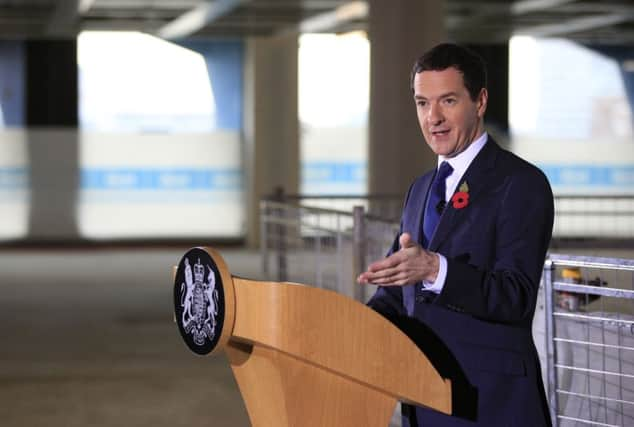UK consumers will still enjoy the good times in 2016, says EY


The EY ITEM Club expects consumer spending to increase by 2.8 per cent in 2016, which will help push GDP growth up to 2.6 per cent, from last year’s downward revised 2.2 per cent.
However, as austerity bites harder and inflation picks up in 2017, they will bear down on consumer spending growth, which is forecast to slow to 2.1 per cent in 2017 and 1.7 per cent in 2018, the report warned. This will cool the UK’s GDP growth rate to 2.3 per cent and 2.2 per cent respectively, according to ITEM.
Advertisement
Hide AdAdvertisement
Hide AdInflation is forecast to average only 0.4 per cent in the first quarter of 2016 and is not expected to reach the key 1 per cent benchmark until the final quarter.
According to the forecast, inflation is likely to remain below the MPC’s 2 per cent target for a prolonged period, averaging 1.6 per cent in 2017 and 1.8 per cent in 2018.
The EY ITEM Club says that it will be difficult for the MPC to justify an increase in interest rates while inflation remains so low and it does not expect the first rate rise until the autumn, at the earliest.
Peter Spencer, the chief economic adviser to the EY ITEM Club, said: “The UK consumer had a welcome holiday from inflation and austerity in 2015, and, until recently, this had look set to come to an end.
Advertisement
Hide AdAdvertisement
Hide Ad“However, the combination of further falls in commodity prices and the money that the Chancellor (George Osborne) found behind the sofa for his Autumn Statement ‘giveaways’, mean that this holiday will be extended into this year. But every holiday must come to an end.
“Inflation will start to pick up towards the end of 2016, while the impact of the Government’s welfare savings will increasingly be felt. This will eat into spending power and cause consumer spending growth to slow.”
Mark Gregory, EY’s chief economist, added: “The consumer led recovery will continue this year, but UK businesses have to start preparing for life after 2016.
“With growth slowing and the supply of cheap labour coming to an end, businesses should be actively considering how to use capital investment to reshape their business models and drive productivity improvements.”
Advertisement
Hide AdAdvertisement
Hide AdAccording to the EY ITEM Club, the housing market will remain buoyant in 2016. House prices are expected to increase by 6.5 per cent this year before easing back to 4.7 per cent in 2017. Housing investment is also forecast to increase by 6.9 per cent this year and 8.3 per cent in 2017.
Mr Spencer added “The housing market ended 2015 on a high note and we expect it to remain very active in 2016, particularly in the first quarter as landlords anticipate the stamp duty increase in April.
“The UK’s fundamental imbalance between supply and demand should ensure that house prices continue to rise.
“However, the buy to let market is likely to slow following the increase in stamp duty and the phasing out of mortgage interest tax relief.”
Advertisement
Hide AdAdvertisement
Hide AdAccording to the EY ITEM Club, UK exports should be supported by the fall in the pound against the dollar in 2016. The forecast shows exports increasing by 4 per cent in 2016 and 4.8 per cent in 2017.
Mr Spencer said: “While growth in world trade remains disappointing, as a result of the slowdown in emerging markets, the UK is relatively well protected.”
THE UK’s traditional trading markets, such as the EU and US, have performed better lately, and should continue to do so, according to Peter Spencer, the York-based chief economic adviser to the EY ITEM club.
He added: “Along with a weaker pound this should see exports doing well this year.”
Advertisement
Hide AdAdvertisement
Hide AdHowever, Mr Spencer said that risks remained for the UK economy.
He said : “We may only be two weeks into the New Year, but we have already seen evidence of the mounting global risks.
“Heightened tensions in the Middle East provide a stark reminder of the fragile geo-political situation, while China’s stock market jitters offer a reminder of how hard it will be to rebalance that economy.
“We expect these risks to remain in check, but as the Chancellor warned us recently, there is much which could go wrong.”
The ITEM Club is the only non-governmental economic forecasting group to use the Treasury’s model. Its forecasts are independent. To find out more visit ey.com/uk/economics.